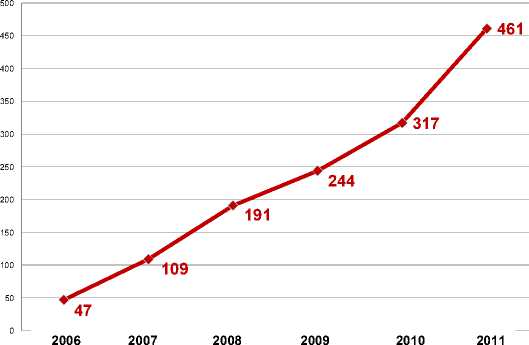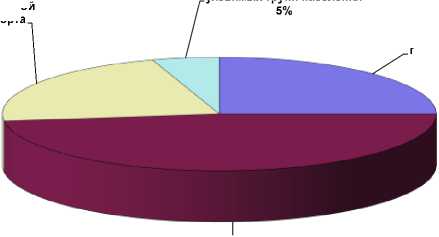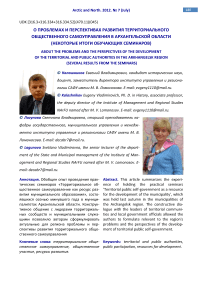About the problems and the perspectives of the development of the territorial and public authorities in the Arkhangelsk region (Several results from the seminars)
Автор: Kalashnikov E.V., Lagunova S.V.
Журнал: Arctic and North @arctic-and-north
Рубрика: Management, Economy
Статья в выпуске: 7, 2012 года.
Бесплатный доступ
This article summarizes the experience of holding the practical seminars ‛Territorial public self-government as a resource for the development of the municipality’, which was held last autumn in the municipalities of the Archangelsk region. The constructive dialogue with the leaders of territorial communities and local government officials allowed the authors to formulate relevant to the region's problems and the perspectives of the development of territorial public self-government.
Territorial and public authorities, public participation, resources for development
Короткий адрес: https://sciup.org/148320437
IDR: 148320437 | УДК: [316.3+316.334+316.334.52](470.11)(045)
Текст научной статьи About the problems and the perspectives of the development of the territorial and public authorities in the Arkhangelsk region (Several results from the seminars)
Arkhangelsk region is one of the regions of Russia, which is actively developing the territo--‐ rial self--‐government (hereinafter --‐ TOC). Number of the territorial communities, designed accord--‐ ing to the current 131--‐FZ "On the basic principles of local self--‐government in the Russian Federa--‐ tion", the region has been steadily increasing (Figure 1).
Динамика роста количества ТОС в Архангельской области

Data from the Ministry for Regional Policy and Local Self--‐Government Arkhangelsk region on May 25, 2011
Expanding the scope and activities of the participants of TOS, which are increasingly be--‐ yond addressing territorial development, engaging, and the preservation of cultural heritage, the development of sports, tourism, support for veterans (Figure 2).
Распределение проектов ТОС по приоритетным направлениям в 2011 году
Развитие физической культуры и спорта 21%
Поддержка социальноуязвимых групп населения

Сохранение исторического и культурного наследия, народных традиций и промыслов, развитие въездного туризма 26%
Благоустройство территории, природоохран ная деятельность 48%
Data from the Ministry for Regional Policy and Local Self--‐Government Arkhangelsk region on May 25, 2011
Researchers of the problems of TOS characterize it as an institution of the territory of [2, p. 78], which is especially important for the northern environment. For the North Arctic regions of Russia, into which the Arkhangelsk region, according to the AA Dregalo and VI Ulyanovsk, today should be implemented the strategy of "habitation areas", which at the level of "means the reha--‐ bilitation and the development of the living environment in the existing settlements "[3, 405]. In our view, the activities of TOS are an effective resource for the process.
Analyzing the history of the emergence and the development of TOS in our area, today we can talk about a new qualitative stage in their development, as the first to make a serious empha--‐ sis not only to increase the financial support of the project activity TOS, but also on aspects of teaching people the basics of the territorial government.
The autumn of last year, the Ministry of Regional Policy and Local Self--‐Government of the Arkhangelsk region, and Institute of Management and regionologii Safa launched a training project under the name "TOS as a resource development of the municipality." Educational training semi--‐ nars were held in the six municipalities of the Arkhangelsk Region in Kotlas, Kotlas, Belsky, Kar--‐ gopol, Konoshsky and Onega areas. In total, the workshop participants were about 170 people, who included municipal officials, the heads of the settlements, TOS activists, representatives of public organizations and associations. Realizing that the workshop will bring together people of different ages, professions, with expertise in TOS training program was built on the principles of active and interactive with the audience.
This initially involves a minimum of the theoretical lectures with a significant amount of creative collaboration listeners. It should be noted that the participants sufficiently appreciated this form of training. That training, group work to find resources, lively discussions, design --‐ the one form of communication, which, in their opinion, is the most effective.
Attraction of the participants to the seminars in a constructive dialogue on the resources of the settlement, city or area, promoted the use of SWOT--‐analysis. Students who work in groups considered the strengths and weaknesses and the opportunities and threats of the municipality on whose territory the workshop. In our view, this form of brainstorming can be widely used in the preparation of programs for the development of settlement or area: a technique to help accumu--‐ late the dominant public opinion on the issue and choose priorities in planning.
Based on the announced topic of training seminars, the focus was on understanding what the resources of the territory. The prevailing stereotype thinking municipal employees and com--‐ munities is the belief that the main obstacle to the development of the municipalities is the lack of financial and material resources. In this approach, lost the understanding that one of the main ad--‐ vantages of the territory --‐ the people, their relationships, tradition, experience, which is the es--‐ sence of human and social capital, which is a very real dimension. In this regard, it is logical to con--‐ sider TOS as a way to activate the human and social resources, and as an independent resource for the development area.
As noted above, the workshops provided an opinion to the problems of local self--‐ government activists of both the TOC and Municipal Employees, which largely depends on the use and the development potential of this social institution.
During the round table, which traditionally end each day of training, formulate expecta--‐ tions of TOS from the municipal and regional authorities, and called the problem in need of urgent solutions.
A special place in the debate on the future of the local self--‐government to address the is--‐ sue of legalizing TOS. The law clearly states that "TOS can be registered as a legal entity in the form of a non--‐profit organization." In October of 2011 from about 500 TPS entities were only 18. This is a serious problem, since only TOS, issued as legal entities have the ability to take on the powers of local self--‐government, to participate in the Russian and international grants, entrepre--‐ neurs. TOS interesting projects for tourism development, for example in Kargopol, Velsky area that can create new jobs and increase the income of the population, can not find a logical extension is due to the lack of legal status of the TOS.
As a way out of this situation can be considered the creation of TPS 'associations at the dis--‐ trict level, which is to become a legal entity, would provide are logged in TOSam significant expan--‐ sion of resource capabilities.
Over the past two years in the Arkhangelsk region TPS almost doubled. This means that the competition between them in the project activity will only increase. Resources allocated in the re--‐ gions and municipalities stimulated the development of CBT, in recent years has increased signifi--‐ cantly, but still limited. From this point is extremely important to the clarity and transparency of the mechanism of selecting the best projects at the municipal level CBT, which in 2008 organized the contest "Rural Initiative". Previously, the selection of the best tender projects by the regional authorities.
If we analyze the current expectations of TPS, an important issue is the transfer of the bal--‐ ance of the local budget socially important objects created by the project activity TOC. Obviously, CBT should not be perceived only as a way of municipal solve economic problems and, therefore, receive additional financial support area. Therefore, the suggestions are relevant to the creation of the Council of Heads TOC at the head of district administration, program development as CBT de--‐ velopment at the regional level and at the level of the settlement.
Summarizing the first results of the last seminar, it should be stressed that the seminar participants have confirmed the high demand for legal and economic knowledge. Still high interest in positive practical experience in the field of CBT and beyond. It is noteworthy that the potential participants and leaders of CBT as municipal officials suggest new topics for future meetings. Hot topics for team building, business communication, leadership. This means that the Ministry of Re--‐ gional Policy and Local Self--‐Government and the Institute of Management and regionologii NarFU named after M.V. Lomonosov is an occasion to further the cooperation on implementation of new educational projects.
Education – is always a process from the 2 sides. A careful analysis of practice of TPS of the Arkhangelsk region allows us to see not only the civil participation of the local communities and competent management solutions, thoughtful management, which basically confirms the high ef--‐ ficiency of the projects.
Similar seminars are important, as these meetings provide a good opportunity to compare our curriculum with the real needs and challenges of the practice of management.
Список литературы About the problems and the perspectives of the development of the territorial and public authorities in the Arkhangelsk region (Several results from the seminars)
- About the general principles of the local government in the Russian Federation: Federal Law of the Russian Federation dated October 6, 2003 № 131-‐FZ adopted by the State Du-‐ ma of the Federal Assembly of the September 16, 2003: Federation Council approved Sep-‐ tember 24, 2003 / / St. Petersburg.: Prior, 2008. 134p.
- Starodubrovskaya I., Mironov N. Problems of rural development in the context of municipal reform. Moscow: Institute of Gaidar, 2010. 116p
- Dregalo A..A, Ulyanovsk V.I. The sociology of the regional transformations: in 2 vols. T. 2. Arkhangelsk: Northern Arctic Federal University, 2010. 493 p.


